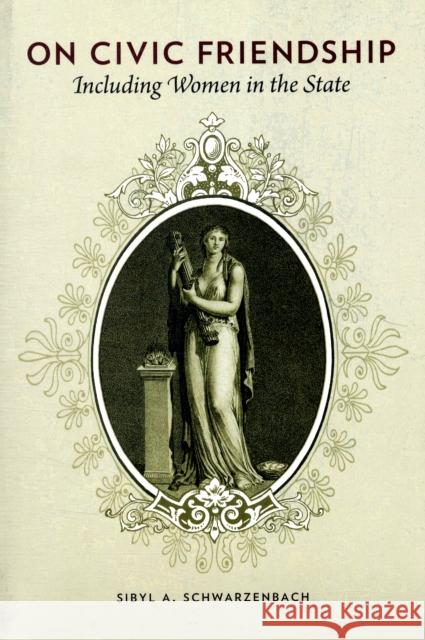On Civic Friendship: Including Women in the State » książka
topmenu
On Civic Friendship: Including Women in the State
ISBN-13: 9780231147231 / Angielski / Miękka / 2009 / 360 str.
Women have performed the vast majority of often unpaid friendship labor for centuries. Embodying the freedom, equality, and ideals of the Constitution, civic friendship emerges as a necessary condition for genuine justice. Through a critical examination of social and political relationships from ancient times to today, Sibyl Schwarzenbach develops a truly innovative, feminist theory of the democratic state.
Beginning with an analysis of Aristotle's notion of political friendship, Schwarzenbach brings the philosopher's insights to bear on the social and political requirements of the modern state. She elaborates a conception of civic friendship that, with its ethical reproductive praxis, functions differently from male-centered notions of fraternity and, with its female participants, remains fundamentally separate from generalized, male-inflected claims of Marxist solidarity. Schwarzenbach also distinguishes civic friendship from feminist calls for public care, arguing that friendship, unlike care, not only is reciprocal but also seeks to establish and maintain equality. Schwarzenbach concludes with various public institutions-economic, legal, and social-that can promote civic friendship without sacrificing crucial liberties. In fact, women's entrance into the public sphere en masse makes such ideals realistic within a competitive, individualistic society.










